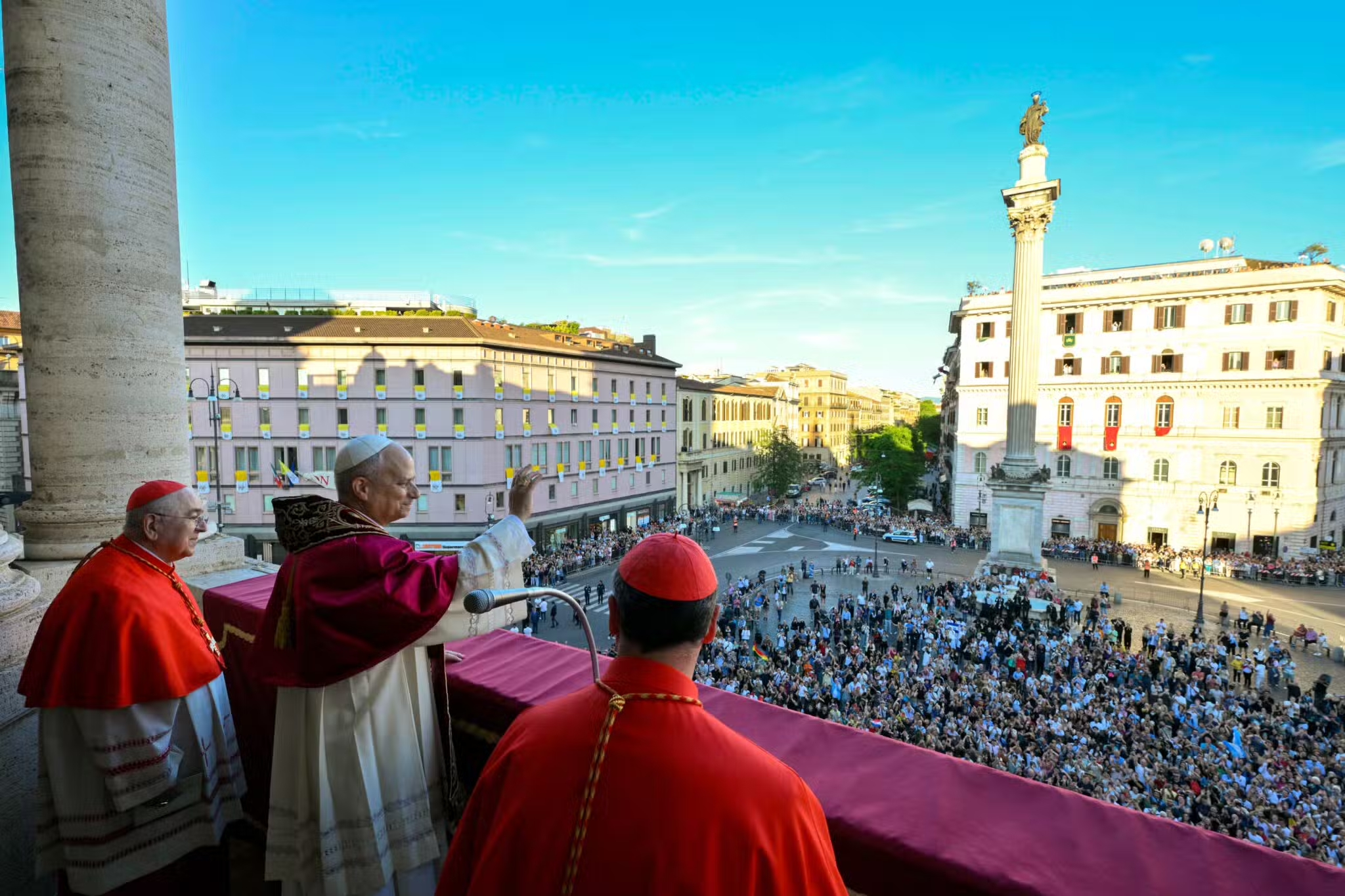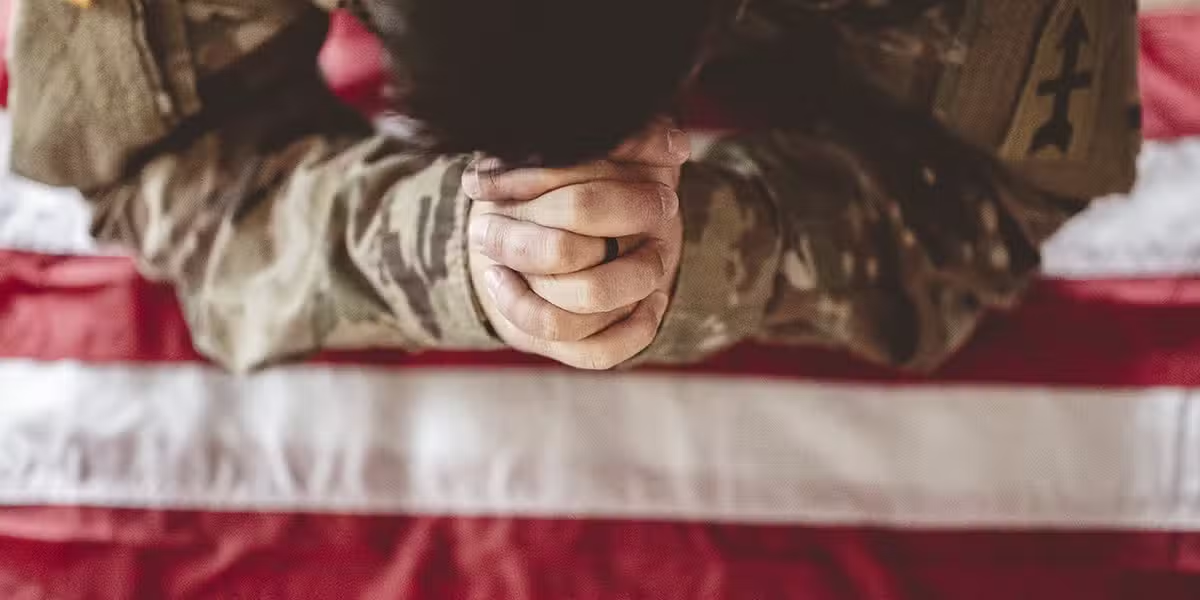The return to the Portiuncula was by way of Borgo San Sepolcro, Monte Casale, and Citta di Castello. Francis was obliged to ride on a donkey, so painful had walking become for him. And it was this way that he traveled in future, although St. Clare had made special shoes for him to ease his wounded feet.
Apparently, Brother Leo had not denied himself the pleasure of telling about the miracle that had just occurred, for their way was marked by popular demonstrations and by miraculous cures. Everyone wanted to see and touch the stigmatic of La Verna, who had become as a living relic, endowed with supernatural virtue. Even his donkey’s bridle was believed to help mothers in difficult childbirth obtain a happy delivery.
Francis, meanwhile, humble and absorbed in God, did not hear the murmurs of veneration by which he was accompanied. Pulling the sleeves of his habit over his bandaged hands, he extended only his fingertips to be kissed by his admirers, not even looking around him.
“Shall we reach Borgo San Sepolcro soon?” he inquired, long after they had passed the town. They made a short halt at the hermitage of Monte Casale, where he restored an epileptic friar to health. Stopping also at Citta di
Castello, he delivered a possessed woman who “barked like a dog,” and cured a young boy “whose wound healed over in the form of a red rose.”
Already the first snows had made their appearance on the mountains. One night when our travelers, prevented by a storm from reaching shelter, had been forced to take refuge under an overhanging rock for the night, they were unable to light a fire—a thing which put the muleteer in a bad humor. “It is all Francis’s fault,” he grumbled, “that we are in this fix and liable to freeze to death.”
The saint touched the grumbler on the back, and (writes St. Bonaventure) the mere touch of his stigmatized hand made the shivering man warm again. A few minutes later he dozed off, and as he himself related later on, he never slept better in his life.
Pained but with Purpose
No sooner had Francis arrived at the Portiuncula than, as though filled with new zeal, he wanted to resume his apostolic tours. But the aggravation of his gastric disorders and the pain caused by the stigmata and his weakness from the loss of blood, troubled the friars. They begged him to seek medical treatment, but he gaily calmed their fears. Did not his honor as Christ’s knight require him to die in harness? And throughout that winter and the following spring, mounted on a donkey, Francis continued to go about Umbria, preaching in as many as three or four villages in a day.
At Foligno, Brother Elias told him of a dream he had had about him: an old priest all in white appeared to him, warning him that Francis would die in two years. This announcement filled the Poverello with joy, but his infirmities soon increased to the point that the friars feared lest he should succumb before that date. He became almost blind and suffered from excruciating headaches.
As Honorius III and the Curia, driven from Rome by a popular uprising, were lodged in Rieti, Cardinal Hugolin urged Francis to consult Teobaldo Saraceni, the pope’s physician. Now the saint had a horror of doctors, and in order to get him to agree to treatment, Elias had to appeal to his spirit of obedience and quote this Scripture verse: “The Most High hath created medicines out of the earth, and a wise man will not abhor them” (see Sirach 38:4).
It was in the summer of 1225 that Francis consented to go to Rieti. Taking with him those who remained his nurses to the end—Brother Masseo and the Three Companions—he decided first to take leave of St. Clare, whom he feared never to see again. Upon his arrival, his condition became so grave that he had to give up going any farther. He stayed about seven weeks at San Damiano, where St. Clare had the consolation of caring for her spiritual father. She had a hut of reeds built for him between the chaplain’s house and the convent, like the one he occupied at the Portiuncula; but before getting any rest there, he spent some dreadful hours.
One would have thought that, “summoned by the devil, all the mice in the country had met there to torment him.” The wattles of his cabin were full of them, and the ground was covered with them. They climbed up on the table where he ate and into the bed in which he was attempting to sleep, and scurried squeaking over his face. One night, his patience exhausted, and tempted to despair, the Poverello cried out to God who seemed to have forsaken him. It was then that a familiar voice was heard:
“Francis, if in exchange for all these evils, you were to receive a treasure so great that the whole earth—even if it were changed into gold would be nothing beside it, would you not have reason to be satisfied?”
“Certainly, Lord!”
“Then, be happy, for I guarantee that one day you shall enjoy the Kingdom of Heaven, and this is as certain as if you possessed it already.
What did they matter now—after such an assurance—the mice, the suffering, and the other inventions of the Evil One? The divine words filled Francis with heavenly joy; the cabin of torments became a place of delight; and this malefic night inspired the invalid, overwhelmed by every ill, with the most optimistic song ever to spring from a human heart.
We like to think that it was at San Damiano that the Poverello composed it. For did not everything in this place which had seen the birth of his vocation, recall God’s mercies toward him? The cave in which he had hidden to escape his father’s “prison.” The stone bench where the old priest had sat and talked to him. The miraculous crucifix that had shown him his way. And this chapel rebuilt by him, whence in the silent night he could hear the chant of the Poor Ladies. No doubt, the thought of Sister Clare—the perfect incarnation of his ideal—the nearness of the four good brothers who cared for him with such tender devotion, and the thought of so many more of his sons who followed the Gospel so well in their poor hermitages, were added consolations.
So Francis blessed his fruitful and beautiful existence. He blessed all nature and life, victorious over death and evil; he blessed the sun that illumines man’s joys and sorrows, his struggles and triumphs; he blessed the earth, where man may merit heaven; and he thanked God for having created him. When the sun had risen, he called his companions and said to them: “The Lord has deigned to assure me that I shall one day enter His Kingdom. So to show Him my gratitude, I desired to compose this new song which you are about to hear.” And the blind saint, for whom the least ray of light was a torture, sang to them what he called “The Canticle of the Creatures”:
Most High Almighty Good Lord,
Yours are praise, glory, honor and all blessing.
To You alone, Most High, do they belong, And no man is worthy to mention You.
Be praised, my Lord, with all Your creatures, Especially Sir Brother Sun,
Who is daylight, and by him You shed light on us.
And he is beautiful and radiant with great splendor.
Of You, Most High, he is a symbol.
Be praised, my Lord for Sister Moon and the Stars.
In heaven You have formed them clear and bright and fair.
Be praised, my Lord, for Brother Wind
And for air and cloud and clear and all weather,
By which You give Your creatures nourishment.
Be praised, my Lord, for Sister Water,
For she is very useful, humble, precious and pure.
Be praised, my Lord, for Brother Fire,
By whom You light up the night,
For he is fair and merry and mighty and strong.
Be praised, my Lord, for our Sister Mother Earth,
Who sustains and rules us
And produces varied fruits with many-colored flowers and plants.
Praise and bless my Lord
And give Him thanks and serve Him with great humility.
Such is the hymn that won for the Poverello the title of the “Orpheus of the Middle Ages,” the incomparable psalm which Renan considered the “most beautiful piece of religious poetry since the Gospels.” Sister Clare probably was the first to hear it, she who loved poetry and music and who also showed herself so grateful to God for the gift of life. Francis dictated it in Italian, such as we still have it; then had it sung by his companions to a melody he had adapted for it. And he himself was so pleased with it that for a moment he thought of sending Brother Pacifico through Europe to sing it to everyone.
An occasion did come soon to call on the talents of the former troubadour.
A violent quarrel had once more set the civil and religious authorities of Assisi at loggerheads. Bishop Guido had excommunicated the podesta Oportulo who had countered by forbidding all relations between the bishop and the officials. Nothing could be more painful to the saint than to see his fellow citizens at odds. Immediately adding a new stanza to his poem, he called Brother Pacifico and said: “Go find the podesta for me, and invite him with his worthies to come to the bishop’s palace to hear my song.”
There was a great crowd in the bishop’s courtyard when the King of Verse appeared with his musicians: “You are about to hear,” he announced, “the ‘Canticle of the Creatures’ which Francis has just composed to the glory of God, and for the edification of his neighbor. And he himself asks you through me to hear it with great devotion.” Brother Pacifico then intoned:
Most High Almighty Good Lord,
Yours are praise, glory, honor and all blessing.
To You alone, Most High, do they belong,
And no man is worthy to mention You.
Be praised, my Lord, with all Your creatures,
Especially Sir Brother Sun,
Who is daylight, and by him You shed light on us.
And he is beautiful and radiant with great splendor.
Of You, Most High, he is a symbol.
Alternating with their leader, the friars repeated the stanza in unison. Meanwhile the podesta, writes the author of the Speculum, “had risen, and, with hands joined and tears in his eyes, was listening with reverent attention.” The entire audience imitated him, moved by these accents of a beloved voice and at hearing their dear saint singing the beauties of a world he could no longer see.
Be praised, my Lord for our Sister Mother Earth,
Who sustains and rules us and produces varied
fruits with many-colored flowers and plants.
It was at this point that Francis had introduced his plea for pardon and peace, his true heart’s message to his fellow citizens:
Be praised, my Lord, for those who grant pardon for love of You,
And bear sickness and tribulation.
Blessed are they who shall bear them in peace,
For by You, Most High, they shall be crowned.
At these words, the emotion of the assemblage was at its height, and sobs choked them as the podesta turned toward the bishop. Falling on his knees before him, he said: “Even if he had killed my own son, there is not a man in the world that I would not want to forgive now, for love of God and His servant Francis. With much greater reason, my Lord, I am ready to make whatever satisfaction you may desire.”
Bishop Guido was no less prompt to admit his own errors. Raising the podesta to his feet and warmly embracing him, he said: “I likewise ask your forgiveness. Pardon me for not fulfilling my charge with proper humility and for having yielded once more to anger.”
They separated completely reconciled; and, thanks to Francis, charity and peace won out once more among the people of Assisi. As soon as he was able to be moved, the saint left Sister Clare, whom he was never to see again, and with his companions, headed for Rieti, fifty miles away. They passed near Terni, then along the winding course of the Velino, coming at last into a lovely plain at the end of which was to be seen—etched against the somber mass of Monte Terminillo—the smiling city where the papal Curia was staying.
Rieti was preparing a triumphal welcome for the stigmatized saint of La Verna. To avoid it, or because of his exhausted state, three miles before reaching his destination Francis asked hospitality of the parish priest of San Fabiano. He was a poor priest whose income was derived from a vineyard. He gave Francis and his escort a warm welcome, but was soon to repent having a saint in his home. For his house was invaded by crowds of pilgrims. The horses of the prelates of the Curia trampled down his garden, and the thirsty throngs picked his choicest grapes and ravaged his vineyard. As he was blustering against the people who had ruined him, Francis observed: “Father, there’s no use in crying over spilled milk. But tell me, how much does your vineyard bring you in the best years?”
“Fourteen measures.”
“Well, then! If you will agree not to call people names any more, I’ll guarantee you twenty from this vintage. And if you fall short, I promise to make up the difference.”
St. Francis Arrives
But the saint did not have to make up anything, for when the grapes were harvested, the priest had his twenty measures. And this was a real miracle, for his vineyard had never yielded more than fourteen before.
The arrival of Francis at Rieti gave full scope to the popular devotion. The bishop’s palace, where Hugolin installed him, was the scene of sometimes stormy demonstrations. People fought over his garments, his combings. A farmer who had collected the water in which Francis had washed his hands, sprinkled his sick flock of sheep with it and they were immediately healed. The case is also told of a canon named Gideon, who was also sick, but as a result of his debaucheries, and who came up to Francis weeping and asking him to bless him.
“How can I make the sign of the cross over you,” Francis asked him, “a man who lives only for the flesh? I will bless you, though, in Christ’s name; but know that evil will befall you again, if you ever return to your vomit.”
And the prediction came true; for when the cured canon went back to his sinful life, he alone was killed when the roof fell in at the house of a fellow canon where he was passing the night. Meanwhile, the saint’s condition grew steadily worse. His stomach, liver, and spleen were seriously affected, while he continued to suffer horribly in his head and eyes. At that time, wishing to hear some music, he summoned a friar who had been a troubadour in the world, and begged him to borrow a viol and give him a little concert. “It would do Brother Body so much good,” he remarked, “to be a little distracted from his sufferings.”
But the former troubadour, who believed that a saint ought to stay in character, observed that some people might be scandalized. “Then let’s not say any more about it,” replied Francis, “for we do have to make concessions to public opinion.”
But the next night, a mysterious visitor came and played the viol under his windows. In the morning, Francis sent for the scrupulous friar. “God consoles the afflicted,” he observed. “Last night, to make up for the concert you refused me, He permitted me to hear one infinitely more beautiful than all the music of earth.”
Not wanting, however, to tarry longer in the palace of the Bishop of Rieti, he asked to be taken to the hermitage of Fonte Colombo. It was there that he underwent treatment by a doctor.
The treatment consisted of cauterizing with a red hot iron the flesh around the more affected eye, from ear to eyebrow.
The sick man shuddered at the sight of the preparations, then addressed the glowing iron: “Brother Fire, the Most High has made you strong and beautiful and useful. Be courteous to me now in this hour, for I have always loved you, and temper your heat so that I can endure it.”
“We fled,” confessed his companions, “so as not to witness his sufferings. But our Father said to us: ‘Men of little faith, why did you run away, when I did not feel anything at all?’ Then turning to the doctor, he said: ‘If it wasn’t done right, you may do it again!’”
And this the doctor did, for he opened the veins over Francis’s temple, after which another physician thought it his duty to pierce both ears with a red-hot iron.
With all this, Francis enjoyed great spiritual happiness. Sometimes the brothers heard him singing new hymns, whose words and music he had composed. Some of them he sent to St. Clare, who was also ill and much worried about him. His heart was more eager than ever, and his head teemed with impossible projects. “Brothers,” he would say, “let us start serving our Lord, for so far we have done nothing.”
For Francis would have liked to live his life over again, seeking new apostolic and knightly adventures. Since this was impossible, he began to dictate letters, two of which, at least, have come down to us.
In one, addressed to the “rulers, consuls, judges, and governors of all countries,” Francis urged these highly placed personages to “think of death which waits for no man, not to transgress God’s Commandments, and to receive frequently our Lord’s sacred body and blood.” Then perhaps recalling what he had seen in Muslim lands, he begged them to “appoint a public crier or other means to invite the people every night to praise and thank the Lord.”
In the other letter, addressed to all the guardians of his Order, he asked them to urge clerics and bishops to venerate the Body and Blood of Jesus Christ above everything else, and to use only proper chalices, corporals, and linens at the altar. And so it was that the Little Poor Man spent his last winter on earth.
When spring came again, Elias and Hugolin had Francis taken to Siena, where it seems there were also some very celebrated physicians. It was during this journey in the plain extending south of San Quirico d’Orcia, that a meeting occurred that has become legendary.
Francis saw three old women coming toward him, so perfectly alike in age, height, and features, that one would have thought them triplets. As they passed him, they bowed reverently and greeted him: “Welcome, Lady Poverty!” “Never,” writes Thomas of Celano, “did a greeting give so much pleasure to St. Francis.” Believing them to be beggar women, he requested the doctor who accompanied him to give them something. Dismounting, the latter gave each of them some money. Thereupon the three sisters disappeared so suddenly that our travelers, who had turned around almost at once, were unable to see what had become of them. “It was doubtless a celestial vision,” writes St. Bonaventure, “symbolic of the virtues of poverty, chastity, and obedience, to which Francis had always been so faithful. But as poverty,” he adds, “was incontestably his chief title to glory, it was natural that it was this virtue these mysterious virgins wished especially to honor in him.”
The reception Francis received at Siena was no less enthusiastic than that of Rieti. Clergy and laity vied with one another in their display of both curiosity and veneration. The biographers tell us that a knight made Francis the gift of a pheasant that did not want to leave him and that refused to eat whenever it was separated from him. They also speak of a learned Dominican who came to propose to him a theological difficulty from which he extricated himself with honor. They further declare that it was there, with the connivance of Brother Pacifico, that a friar of Brescia succeeded in seeing the sacred stigmata. “I forgive you,” said the saint later to the King of Verse, “but you have caused me much pain.”
As for the doctors of Siena, their efforts were as ineffectual as those of the pope’s physician. One night the saint vomited such a quantity of blood that the friars believed his last hour had come. Gathered round his pallet, they were inconsolable: “What is to become of us,” they mourned, “poor orphans that we are, abandoned by him who was father, mother, and good shepherd to us?”
Death’s Door
They besought him to leave them a written testimony of his last wishes, to guide them in the future. Francis had Brother Benedict of Pioraco, who had celebrated Mass several times at his bedside, summoned. “Write,” he said, “that I bless all my friars present and to come. And as I am not able to speak longer, here, in a few words, is what I want them to know: In memory of me who have blessed them, let them always love and honor one another. They must ever love and honor our Lady holy Poverty, and they must ever humbly and faithfully obey the prelates and clergy of our holy Mother the Church.”
Meanwhile, Brother Elias, who had been alerted, hastened to the invalid to take him “home” to die. Francis himself desired to breathe his last at the Portiuncula; while his fellow citizens, who had just been despoiled by the people of Bettona of the body of St. Crispolto, did not intend to be dispossessed this time.
Assuredly, it is rather painful to observe the preoccupation of Elias and the Assisians during the last months of the Poverello’s life. But we must remember that the people of the Middle Ages were a little less hypocritical than we; and we should likewise recall the development that the cult of relics had taken on at this period. Nothing outweighed for a city the advantage of possessing the body of a servant of God to place on its altars. Piety, patriotism, and self-interest were here in accord; and men were as willing to shed their blood then for holy relics as they have since been for assuredly more futile motives.
Led by the Minister General, the cortege wended its way toward Cortona; and the invalid stopped for a few days at the hermitage of Le Celle, a league from the city. There, a poverty-stricken man who had just lost his wife and had several children to care for, came to Francis to ask for alms. Francis gave him his cloak, saying, “It is very fine, as you see. That is why, if you dispose of it, be sure to make whoever wants it pay you well.”
It was a new cloak, for it replaced the one the saint had taken off on the same trip to give another poor man. The brothers lost no time trying to get it back; but the beggar held on to it so stubbornly that they had to hand him a good sum to make him give it up.
Some time after returning to the Portiuncula, with the onslaught of the summer heat, they decided to take Francis up to the healthier air of the hermitage of Bagnara, in the mountains east of Nocera. Later, while there, the saint seemed at death’s door. The swelling of his legs had gone up to his abdomen, and he could not take any nourishment. Fearing the worst, the municipality of Assisi dispatched its men at arms to meet the cortege. Thus escorted, the group reached the village of Satriano in the mountains. There, driven by hunger and thirst, the knights and their retinue attempted in vain to procure some provisions. “It’s up to you, then,” they said laughingly to the friars, “to feed us, since the people here refuse to sell us anything whatever.”
“You should have gone about it differently,” replied Francis, “and put your trust in God and not in flies.” By flies he meant their money. “Ever since man sinned, all earthly goods are alms that God gives with equal kindness to good and evil men. So go to them and ask them for what you need for the love of God.” They obeyed and this time obtained all they desired.
The arrival at Assisi was in the nature of a triumph. “Everybody exulted,” writes Celano; “for they hoped that the Saint would soon die, and they blessed God for bringing him back to their city.”








